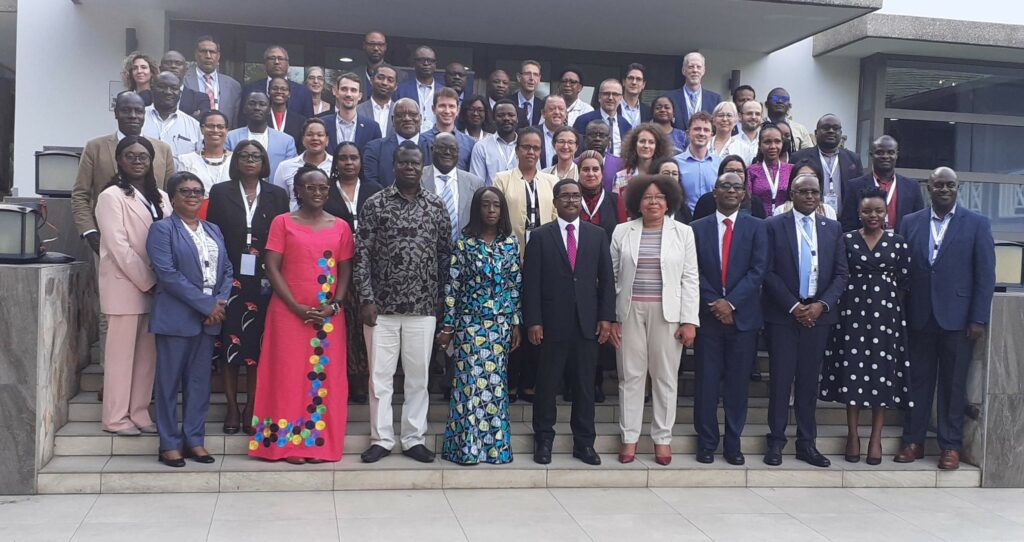Vulnerable populations face higher burden of COVID-19 morbidity and mortality – Minister
 The effect of the COVID-19 pandemic has worsened inequitable access to health care systems in Africa and the world, Health Minister, Mr Kwaku Agyeman-Man, has said.
The effect of the COVID-19 pandemic has worsened inequitable access to health care systems in Africa and the world, Health Minister, Mr Kwaku Agyeman-Man, has said.
He said the vulnerable populations continued to face higher burden of morbidity and mortality.
The Minister was speaking at the opening of the 3rd African Medicine Regulatory Harmonization (AMRH) Week in Accra, on the theme: “The African Medicine Regulatory Harmonization- A foundation for the African Medicines Agency”.
According to him, this situation was due to limited access to affordable, effective and good quality essential health care products and services in the African continent.
This he said could only be addressed through efficient and well coordinated efforts to harmonize regulatory processes and initiatives that would enhance collaboration among regional communities.
He said: “Many African governments have realised and agree that there is an urgent need to strengthen manufacturing capacities on the continent for vaccines and other medical products as part of building strengthened health systems after the COVID-19 pandemic and in preparation for future pandemics should they occur”.
Dr. David Mukanga, Deputy Director, Africa Regulatory Systems, expressed commitment to support the vision of the AMRH in addressing the challenges to achieve its objectives, adding that there was the need to move quickly due to Africa’s many challenges.
“We need to move beyond plans and ideas to executing, and we are here to work with the African continent to make sure that people of the continent, mothers, children and the men on the street have access to quality medicines,” he said.
Mrs Delese Mimi Darko, Chief Executive Officer, Food and Drugs Authority (FDA), said Ghana, Egypt, Tanzania, South Africa and Nigeria were the African with strong regulatory systems.
She disclosed that the Authority had trained more than 52 African regulators in clinical trial oversight, pharmacovigilance, and marketing authorisation.
She said: “Since 2020, we have been designated as a Maturity Level 3 agency based on the World Health Organization’s Global Benchmarking Tool and we are working assiduously to achieve ML4”.
Mrs Darko noted that the momentum for joint learning and mentorship was rife and keen to grow along with many National Regulatory Authorities (NRAs) to achieve the vision of a robust medicine regulatory regime in Africa.
The AMRH week is an event convened every two years by the AMRH joint secretariat which comprises the African Union Development Agency-NEPAD (AUDA-NEPAD) and the World Health Organisation (WHO) with support from the African Union Commission (AUC).
The ‘week’ brings together high-level African leaders and policy makers, members of the AMRH steering committee, Regional Economic Communities (REC) and other partners and stakeholders to showcase and celebrate the successes of AMRH as well as to reflect on progress, challenges and identify opportunities for continued improvement.
The NRAs across the globe, especially in Africa and other low and middle-income countries faced many challenges in ensuring access to quality medical devices, in-vitro diagnosis, personal protective equipment and other health products to control the COVID-19 pandemic.
In response to these challenges, AMRH steering committee is expected to provide accelerated technical support and assistance to address some of the challenges highlighted.
The 3rd AMRH week celebration which was hosted for the first time in Ghana would present an opportunity to share experiences, good practices and innovative responses to the pandemic by the NRAs.
The vision of the AMRH would ensure that countries work together under the AMRH, pull talents from across the continent, ensure best practices in regulatory processes while ensuring that medical products that are either produced locally or imported would be safe and of good quality for the citizenry.
Source: GNA
